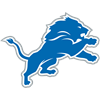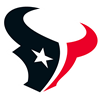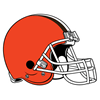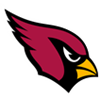This article is part of our NFL Draft series.
26 different skill-position players went off the board during Day 2 of the NFL Draft. While the tight ends dominated Round 2, a bevy of WRs in Round 3 created an interesting value point for redraft and dynasty leagues alike. I have you covered on all the action that took place during a tumultuous Day 2 of the 2023 NFL Draft
Quarterback
Will Levis 33rd overall, Tennessee Titans 
It appears as if the Ryan Tannehill era is on its last legs, or at the very least, the Malik Willis era had its legs cut out from underneath it. Truthfully the answer is probably both.
Given the Titans moved up from pick 41 to 33 to acquire Levis and sent a third-round pick to the Cardinals next year in order to facilitate the move, it certainly feels as if he's the heir apparent in Tennessee. Tannehill's contract has zero dead-cap implications next year, so while I'd imagine the veteran will start in 2023, I wouldn't be surprised at all if Levis makes an appearance his rookie year if the Titans fall out of AFC South contention.
I think we know everything there is to know about Levis at this point, both from a positive and negative standpoint. He's the prototypical framework for a quarterback, he can chuck the ball downfield and especially in today's NFL, his athleticism and creativity isn't lacking. But there's just too many "what are you thinking" moments on his tape, not to mention just overall lack of collegiate production against some of the better defenses, especially without Wan'Dale Robinson, for me to have any sort of confidence in his success.
More importantly from a dynasty perspective, I think the Titans are quietly entering a pretty bad period offensively. Treylon Burks came on towards the end of his rookie season, but it's hard to imagine the offense continuing to churn yards once Derrick Henry officially leaves for greener pastures, and given all the smoke regarding a potential trade in the past weeks, that move seems like it'll be coming sooner rather than later.
Hendon Hooker 68th overall, Detroit Lions 
The Lions traded up in the third round to end Hooker's slide. I understand the appeal from the Lions' perspective -- if he's able to come back healthy following an ACL tear in November, it's entirely possible the 25-year-old could push Jared Goff to be the team's starter in 2024. And even if he can't, a third-round pick is pretty easy to move on from if it becomes clear Hooker is not the answer.
While Levis has more of an immediate "future" and probably will be given every chance to fail given the draft capital invested in him, I'd almost rather roll the dice on Hooker in dynasty superflex formats given the bevy of weapons around him and a shaky option in Goff blocking his path.
Running Back
Zach Charbonnet 52nd overall, Seattle Seahawks 
Much like the Jahmyr Gibbs selection in Round 1, this is an uncomfortable landing spot for Charbonnet given the UCLA product was billed as one of the few true three-down backs from this class. At the very least he'll be assured a fixture in a run-oriented offense even if that means splitting opportunities with last year's second-round pick, Kenneth Walker. It's just hard to quantify what that actually means
It took injuries to the likes of Rashaad Penny, DeeJay Dallas and Travis Homer for Walker to truly shine as the team's bell cow, but the litany of injuries also never gave us a true sense as to how the backfield would shake out if everyone had been healthy. The closest comparison likely would have been Penny's 43 snaps to Walker's 22 back in Week 4, the final week before the former suffered yet another season-ending injury prompting the Michigan State star to run away with the backfield in the second half of the season.
If I had to guess, I'd imagine it'd lean something like a 60/40 split in favor of Walker, but even in that scenario, it's a massive fantasy blow to both backs even in such a heavy running offense.
Kendre Miller 71st overall, New Orleans Saints 
It's tough to discern the landing spot for Miller from a dynasty perspective, but at least in redraft formats this is another frustrating home for a talented potential workhorse.
A lot depends on the legal status of Alvin Kamara, but if the talented Pro Bowler is available for all of 2023, the TCU product would need to contend with Jamaal Williams for short-yardage and goal-line touchdowns, a likely losing battle given Williams' prowess in that facet last year. It's also a bit concerning we haven't heard more about the MCL injury Miller suffered during the CFB playoff semifinals, something that the soon-to-be 21-year-old is reportedly "ahead of schedule" on, but also forced him to miss both his Pro Day and Combine.
Miller certainly has the frame to be a bruiser between the tackles, and he was undeniably effective in his lone season as a starter at TCU, but there's too many questions marks regarding his situation to be optimistic about his 2023 redraft value.
Tyjae Spears 81st overall, Tennessee Titans 
If there's one running back in this class that could stand to jump up redraft rankings between now and August it's Spears, who sits perilously behind stalwart Derrick Henry as the team's possible No. 2 back.
Spears, who will turn 22 in June, finally got the backfield to himself last season and the redshirt junior capitalized in a major way finishing with the fifth-most rushing yards in the CFB (1,581) with a sterling 6.9 yards per carry to boot.
A dynamic and slippery runner near the line of scrimmage, Spears' poor test results (4.52 40-yard dash at Pro Day) seemed to confirm the lack of getaway speed in the open field, and at 5-foot-10, 201 pounds, it's not as if the talented Tulane product easily fits the mold of a 20-touch ballcarrier. Depending on where some of these Day 3 running backs go, I could easily make the case for Spears as a worthwhile best ball option at a lower ADP, and at minimum he's an intriguing add in dynasty formats if you're under the assumption that Henry's Titans tenure may be up in the near future. However, both of those options come with risk even if I'm confident Spears will overtake Hassan Haskins as the Titans' backup running back this season.
Devon Achane 84th overall, Miami Dolphins 
Mike McDaniels and the Dolphins certainly have a type. At 5-foot-8, 189 pounds it seems incredibly unlikely Achane will be able to last in the NFL if he's taking upwards of 20-plus touches a game, but I also don't think any team would put him in that spot either.
The Texas A&M product isn't going to be a fantasy option for a lot of people who need a running back to look a certain way and have a certain function, but I'm not sure there's a better landing spot in terms of letting Achane be his best self. The Dolphins already have Raheem Mostert and Jeff Wilson, and that combo should occupy a certain subsection of carries, but there's absolutely a place on the field for Achane to be a deliberate change-of-pace back, or even better yet, a shifty target underneath. The Dolphins are littered with speed options across the board and we know coach McDaniels is one of the better coordinators in the entire league in terms of scheming running lanes. Whether that means the 21-year-old will be a fantasy factor in redraft formats or just a really fun option to watch on Sunday's remains to be seen, but given his tools, I'll happy bet on the former's prospects.
Tank Bigsby 88th overall, Jacksonville Jaguars 
After trading away James Robinson midseason, the Jaguars went all in on giving Travis Etienne a full workload. That extra wear and tear eventually caught up to the first-round pick from Clemson, as Etienne played more than 30 snaps just once Week 17 through the divisional round playoff matchup.
I know Bigsby's 40-yard dash at the Combine was so-so (4.56), but as a complementary piece to Etienne, and specifically a rugged interior runner, there's nothing wrong with the selection. Bigsby's athletic profile likely caps any best-case scenario from a fantasy perspective, but with so many backfield committees in the NFL today, even a couple weeks as a featured option, or even as a short-yardage specialist, has its place in redraft formats.
Wide Receiver
Jonathan Mingo 39th overall, Carolina Panthers 
The first wide receiver selected Day 2, Mingo is an intriguing prospect given his size (6-foot-2) and noticeable straight-end speed (4.46 40-yard dash at the Combine). He never really put together the type of production you'd expect from an early second-round wideout, "breaking out" his senior year to the tune of 51-861-5 while compiling just under 1,000 total receiving yards in his three prior collegiate campaigns, but the tools are absolutely there.
Whether it's the aforementioned size, his explosive leaping ability or his capacity to eat up yards after the catch, Mingo "looks" like an NFL receiver, especially in a long lineage of dynamic Ole Miss prospects. The long strides would suggest he's not an obvious short-yardage target and the combination of DJ Chark, Adam Thielen and Terrace Marshall doesn't present an obvious starting spot come the start of the season, but Mingo is clearly a weapon and makes for an intriguing asset to speculate on in future seasons.
Jayden Reed 50th overall, Green Bay Packers 
For a second consecutive season, the Packers opted not to add an offensive weapon in Day 1 of the NFL Draft, but double dipped the ensuing day by acquiring tight end Luke Musgrave with the first of their two second-round picks before trading down twice and ultimately selecting the Michigan State wideout.
Given both Christian Watson and Romeo Doubs project to be outside threats, Reed pretty seamlessly fits into the slot for the Packers, who will be missing both of their top slot snap getters in Allen Lazard and Randall Cobb. There's a bit of a duality with Reed, who had a number of relatively easy drops over the past two years, but also displayed an uncanny ability to make tough, contested catches despite measuring in at 5-foot-11, 187 pounds. That size makes me a little concerned he'll be able to hold up at the NFL level as a pure slot target, but he has enough speed and RAC capabilities to give some flexibility as an outside target as well. I'd be surprised if the Packers don't add a veteran slot target at some point before the start of training camp, but as it stands, Reed would compete with the likes of late-round selection last year, Samori Toure and second-year UDFA Bo Melton for snaps as the No. 3 target in an offense now helmed by Jordan Love.
Rashee Rice 55th overall, Kansas City Chiefs 
Rice feels like the perfect answer to an offense that has plenty of potential slot targets, but is devoid of any true outside options. Rice transitioned from the slot to the outside in his senior season at SMU and exploded to the tune of 96-1,355-10, routinely winning jump balls and using his body (6-foot, 204 pounds) to make contested catches downfield and at intermediate levels.
When you think of the magic of Patrick Mahomes it's always his uncanny ability to create positive plays outside of the pocket, but lost in that wizardry is his sheer precision on scheduled targets. Kadarius Toney, Marquez Valdes-Scantling and Skyy Moore will obviously be dangerous when it comes time to improvise, but Rice could be a very potent option when chaos isn't occurring, provided he's able to carve out a starting role in 2023.
Marvin Mims 63rd overall, Denver Broncos 
The Broncos traded up to get Mims at the end of the second round, seemingly confirming the rumors earlier this offseason that one or both of Courtland Sutton or Jerry Jeudy was on the trade block.
Mims' 4.38 40-yard dash at the Combine and solid junior season (54 receptions, 1,083 receiving yards and six touchdowns across 91 targets) put him firmly on the map as a possible Day 2 selection, but even if one of the stud wide receivers were to get moved, the likes of KJ Hamler and Tim Patrick figure to block the Oklahoma product's ability to truly make an impact in Year 1
(Tank) Nathaniel Dell 69th overall, Houston Texans 
Dell became the second of three wide receivers to see a team trade up to select them towards the end of the second round and into the third.
The nickname "Tank" would make you think bruising target, but in reality the 5-foot-8, 165-pound receiver is incredibly slight, but in turn, dangerously shifty. Over 2,600 total yards and 29 touchdowns combined in his final two years at Houston is eye-catching, but it's hard to correlate that with his average test results (4.49 40-yard dash at the Combine). The duo of Nico Collins and John Metchie is uninspiring, as is the veteran offseason additions of Robert Woods and Noah Brown, but Dell feels more like an explosive gadget option as opposed to a full-fledged pass-catching target at the NFL level.
Jalin Hyatt 73rd overall, New York Giants 
It's odd to see a couple of third-round wide receivers have as much fantasy value as players selected ahead of them in the previous two rounds, but both Hyatt and Cedric Tillman, who went directly after his Tennessee brethren to the Browns at pick 74, really fell into ideal spots.
The Giants identified speed as a serious weakness in its pass-catching corps and rectified that in part by signing Parris Campbell this offseason, but the former Colt played in just 15 of his first 49 games before suiting up for all 17 in a contract year. Darius Slayton, who was re-signed to a cheap deal, could rectify that problem too, but in the event those two injury-prone pass catchers are unavailable, Hyatt's track speed will be uniquely valuable in an offense that thrived without a seam-stretching option for much of 2022.
I think there's obvious concerns as to how Tennessee's unique spread offense translates to the NFL level, and the Will Fuller comparisons are a disservice to Hyatt given the speedy veteran was close to 10 pounds heavier than the rookie, but "run straight and catch the ball" pass catchers absolutely have a role in today's NFL even if it doesn't necessarily translate into obvious fantasy stardom. Wyatt will be an interesting option in best ball formats specifically for that reason.
Cedric Tillman 74th overall, Cleveland Browns 
Can I get a mulligan? I was infatuated with the selection of David Bell in the third round of last year's draft, but the Purdue product never really made an impact and seems to have fallen out of the organization's favor given the acquisition of Elijah Moore this offseason.
Tillman is an older prospect, but he has the body type (6-foot-3, 213 pounds) to be a consistent boundary target, and I think he has underrated athleticism for a guy of his stature. The NFL soundly punished the Tennessee offensive scheme with Wyatt, Tillman and quarterback Hendon Hooker all falling to the third round, but there's just too many instances on tape where Tillman thrived in pretty obvious professional scenarios. It's worth noting, 2023 is the final year on Donovan Peoples-Jones' rookie contract and considering the Browns enter a difficult cap period with Deshaun Watson's deal, Tillman could have even more value in years to come.
Josh Downs 79th overall, Indianapolis Colts 
At only 5-foot-9, 171 pounds, Downs is a smaller target and likely won't get many opportunities on the outside, but he's an uncanny route runner and can pretty easily carve up defenses when given the opportunity (195 receptions, 2,364 yards and 19 touchdowns in two years as a starter at North Carolina).
I despise comparisons to star NFL players if only because it always tends to be the most optimistic of corollaries, but it's hard not to see the similarities to T.Y. Hilton, another under-sized target capable of mincing up defenses any which way. Hilton was a bit taller and at minimum 10 pounds heavier while running a 4.31 40-yard dash compared to Downs' 4.48, so while their might be shades to Hilton's game, the third-round rookie is far from that level of explosive athlete. The Colts added Isaiah McKenzie this offseason to replace the departed Parris Campbell, but it wouldn't be surprising at all to see Downs earn plenty of training-camp buzz as a possible No. 3 option.
Michael Wilson 94th overall, Arizona Cardinals 
By all accounts, Wilson's performance at the Senior Bowl vaulted him up draft boards as the four-year starter at Stanford was ravaged by various injuries throughout the course of his collegiate career, seemingly stalling his trajectory.
Wilson's frame (6-foot-2, 213 pounds) makes him one of the biggest wideouts currently on the Cardinals roster including DeAndre Hopkins. While that doesn't guarantee playing time, it's worth pointing out the regime change could mean a total identify shift from the one that coveted the likes of Rondale Moore, Marquise Brown, Greg Dortch and Andy Isabella in past seasons.
Tre Tucker 100th overall, Las Vegas Raiders 
It's a true surprise to see Tucker go ahead of Cincinnati teammate Tyler Scott, but it's clear the Raiders valued his explosiveness after the catch, especially in the slot.
Tucker ran a sub 4.4 40-yard dash at his Pro Day and nearly clocked the same number at the NFL Combine, so it's obvious he's fast. Unfortunately that might be the only thing Tucker really has going for him in an offense that doesn't seem catered to taking advantage of that skillset.
Tight End
Sam LaPorta 34th overall, Detroit Lions 
The Lions made LaPorta, not popular pick Michael Mayer, the first tight end off the board Friday.
The Iowa product is undersized by tight end standards (6-foot-3, 245 pounds), but he's a uniquely gifted receiver, to the point where he could conceivably line up as a slot option in certain packages. This thought process also presents a downside in a sense because he'll likely concede playing time in the event the Lions need a beefier option to take on blocking responsibilities. Still, I'd rather have that situation than the one Arthur Smith forced on fantasy managers last year when it came to Kyle Pitts.
There's some arguments that LaPorta is not as talented after the catch as he displayed in college, but a 4.59 40-yard dash at the Combine wipes away any of those issues in my mind. Rookie tight ends rarely make a difference in Year 1, but LaPorta should have plenty of opportunities to emerge from a middling group currently led by Brock Wright and Shane Zylstra.
Michael Mayer 35th overall, Las Vegas Raiders 
Mayer became the second of what amounted to five tight ends to go in the second round. Unlike most of his Day 2 contemporaries, the Notre Dame product will have legitimate competition for playing time with Austin Hooper and O.J. Howard in tow.
That's not to say he can't easily push the veteran duo aside, however, especially given Mayer's lofty pedigree as a three-time receptions leader during his time at South Bend. It never felt as if the 21-year-old had blazing speed, or even exciting yards-after-the-catch capabilities, and that was basically confirmed thanks to a 4.7 40-yard dash at the Combine that cemented his fall into the second round, but Mayer feels like the definition of plug-and-play regardless.
As a result, he's probably the most valuable rookie tight end when it comes to redraft formats, even if his athletic limitations cap his upside in pure dynasty leagues. Each fantasy manager is going to have their "favorite" among this long list of Day 2 tight ends, but it wouldn't be shocking at all to see Mayer's career longevity wins out over time even if others have higher peaks.
Luke Musgrave 42nd overall, Green Bay Packers 
The era of Matt LaFleur is officially upon us. LaFleur has longed for multiple tight end sets to serve a function in the offense, but it's been hard to really understand what that would look like with Marcedes Lewis, Robert Tonyan and a smattering of UDFAs occupying those critical snaps in past seasons.
Left out of that list is 2020 third-round pick Josiah Deguara who failed almost immediately in his hybrid H-back/TE role. I recognize Musgrave and Deguara play significantly different positions, but it's the hyper specialized roles that LaFleur seems to emphasis that make me concerned in the first place. And even if Musgrave's athletic tools allow him to reach his lofty potential in the Packers offense, he'll have to overcome the litany of injury issues that stymied his success at Oregon State.
We'll see how much of a focal point Musgrave will carve out in this offense post Aaron Rodgers, but the high draft capital does not guarantee fantasy stardom, and certainly not in Year 1.
Luke Schoonmaker 58th overall, Dallas Cowboys 
Schoonmaker will turn 25 years old in September and is relatively raw after converting from quarterback in high school. He's certainly an athletic target with the prototypical frame and appears to be a willing blocker, but there's not much there in terms of capabilities after the catch.
The loss of Dalton Schultz had everyone assume the Cowboys would scramble to get a tight end early, so they're right in that sense. It just wouldn't shock me at all if Jake Ferguson and even Peyton Hendershot continue to see playing time over Schoonmaker in 2023 rendering the Michigan product a poor redraft asset and uninspiring dynasty target.
Brenton Strange 61st overall, Jacksonville Jaguars 
Strange suggested in his post-draft interviews that he'd be willing to play as an H-back for the Jaguars. It's a curious note, but certainly makes some sense with receiving threat Evan Engram -- who was assigned the team's franchise tag -- slated to be back for another season.
Regardless, I'd imagine the Jaguars intend to use more two tight end sets with Strange acting as the blocking specialist. The 22-year-old proved to be a durable target underneath during his time with the Nittany Lions, but if you're relegated as the "blocker" in an offense with Engram, there's just not enough opportunity to really make a splash year in, year out.
Tucker Kraft 78th overall, Green Bay Packers 
While some are going to bill the tight-end double tap as a commitment to giving Jordan Love weapons -- not a "bad" answer mind you -- the selection of Kraft really is a complete immersion into the Matt LaFleur offense.
It sure seems like an offense is destined to fail if it needs to have multiple Day 2 selections at TE to function at its peak, but hey, what do I know. For what it's worth, I think Kraft is arguably the more complete of the two Packers rookies and the South Dakota State product might actually see the most playing time even if it's just because he's a more capable blocker. Not sure that means anything from a fantasy perspective, however.
Darnell Washington 93rd overall, Pittsburgh Steelers 
The hulking 6-foot-7 target from Georgia slipped all the way into the back end of the third round due to character concerns as well as "medical issues". Much like how the Steelers capitalized on the free-falling George Pickens last year, Washington just seems like a good football player, and one unique relative to what the rest of the NFL has to offer.
Pat Freiermuth isn't going anywhere, so in that sense it's a difficult landing spot from a fantasy perspective. I imagine the 21-year-old will see the most playing time initially as a blocker and red-zone target, but the latter doesn't support what was a relatively high ADP based on the assumption he'd go near the first round.
Cameron Latu 101st overall, San Francisco 49ers 
There's a point where the good will from the George Kittle selection wears off, and I feel like we're about three years past that mark.
Latu isn't especially big by tight end standards and he's definitely not fast (4.78 40-yard dash) so I can't fathom the reason he went in the third round. The 49ers seem to treat the compensatory third-round picks as the ultimate luxury item with the litany of bad running backs paraded across draft boards in recent years, but this feels like another level of weird/bad choice.
Kicker
Jake Moody 99th overall, San Francisco 49ers 
I never thought I'd do a write up on a kicker in this article series, but here we are. Ridiculous draft-pick value aside, the 49ers desperately needed a kicker and Moody has made plenty of clutch kicks in his college career.
Kyle Shanahan might be an all-time bad drafter, but he typically has one of the best offenses year in and year out. That's really all I need to know when it comes to considering fantasy kickers.












